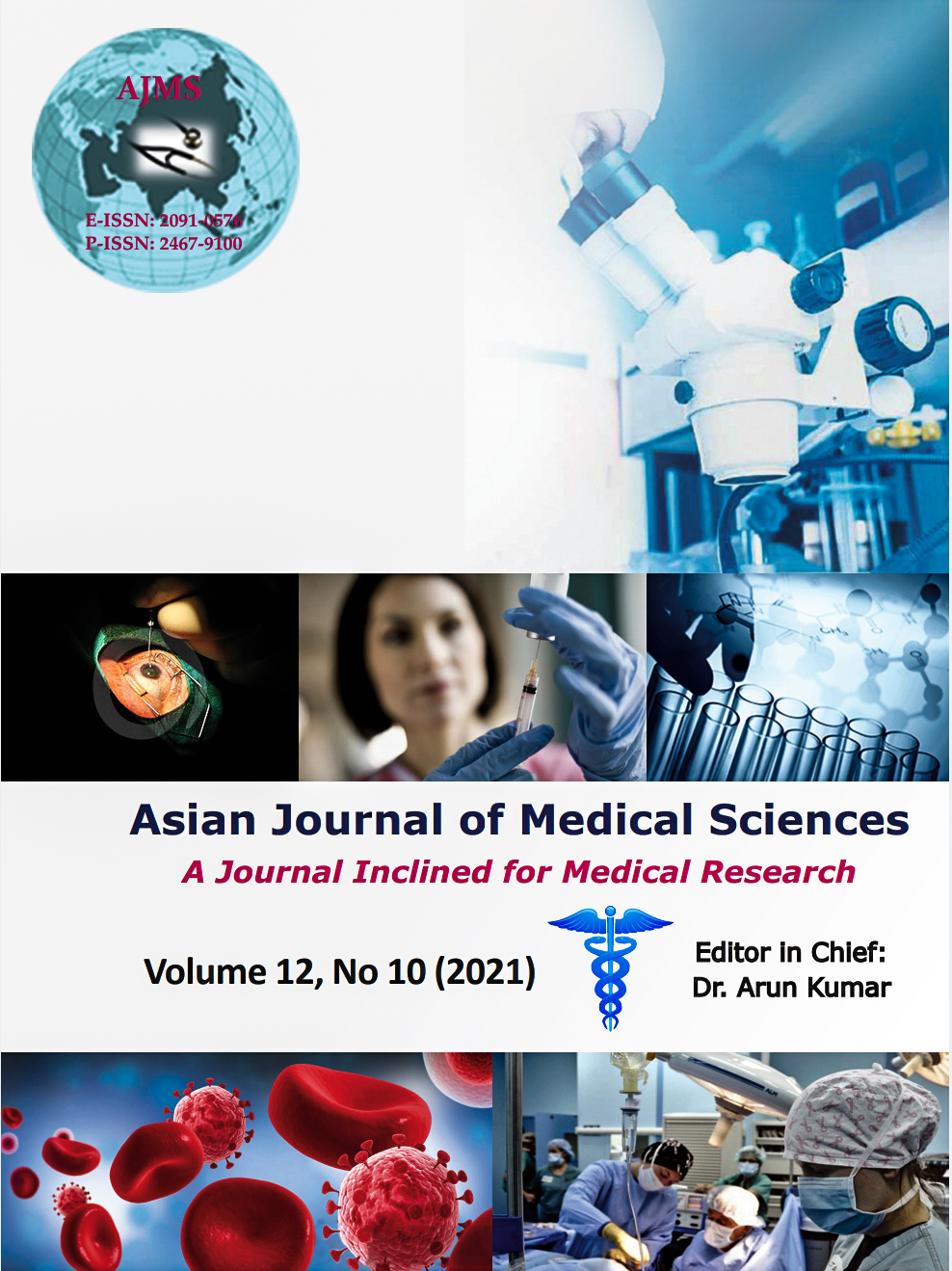Thyroid dysfunction in patients of metabolic syndrome: A study from a tertiary care center in India
Keywords:
Metabolic syndrome; Thyroid dysfunction; Hypothyroidism; Subclinical hypothyroidism; Hyperthyroidism; Diabetes mellitus.Abstract
Background: Metabolic syndrome is characterized by hypertension, dyslipidemia, central obesity, glucose intolerance, insulin resistance. Thyroid hormone acts as general pacemaker, accelerating metabolic process and may be associated with metabolic syndrome. There is no information available in literature regarding the prevalence and association of thyroid dysfunction in metabolic syndrome in this central region of the country.
Aims and Objective: To estimate the prevalence of thyroid dysfunction in patients of metabolic syndrome.
Materials and Methods: It is a duration based prospective cross sectional study including 200 patients of metabolic syndrome. A detailed history, clinical examination and relevant investigations including serum Free T4 (FT4), Free T3 (FT3), Thyroid Stimulating Hormone (TSH) were done. Range, frequencies, percentage, mean, standard deviation and P value were calculated. P value of < 0.05 was taken as significant.
Results: Prevalence of thyroid dysfunction in metabolic syndrome patients was 28.5%. Prevalence of subclinical and overt hypothyroidism was 18.5% and 8.5% respectively. In patients with both metabolic syndrome and thyroid dysfunction, most common components associated are diabetes mellitus and hypertriglyceridemia.
Conclusion: Thyroid dysfunction is significantly common in metabolic syndrome patients. It should be aggressively detected and treated in these patients for better outcome.
Downloads
Downloads
Published
How to Cite
Issue
Section
License
Copyright (c) 2021 Asian Journal of Medical Sciences

This work is licensed under a Creative Commons Attribution-NonCommercial 4.0 International License.
Authors who publish with this journal agree to the following terms:
- The journal holds copyright and publishes the work under a Creative Commons CC-BY-NC license that permits use, distribution and reprduction in any medium, provided the original work is properly cited and is not used for commercial purposes. The journal should be recognised as the original publisher of this work.
- Authors are able to enter into separate, additional contractual arrangements for the non-exclusive distribution of the journal's published version of the work (e.g., post it to an institutional repository or publish it in a book), with an acknowledgement of its initial publication in this journal.
- Authors are permitted and encouraged to post their work online (e.g., in institutional repositories or on their website) prior to and during the submission process, as it can lead to productive exchanges, as well as earlier and greater citation of published work (See The Effect of Open Access).




